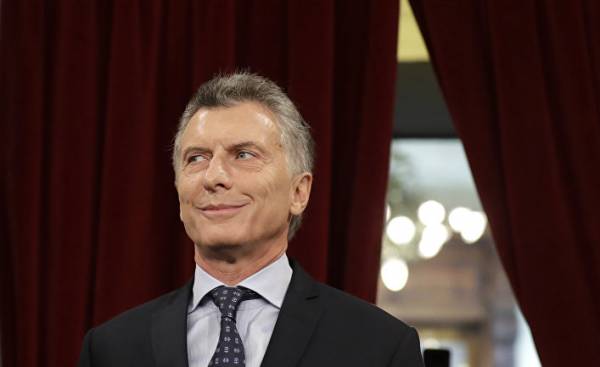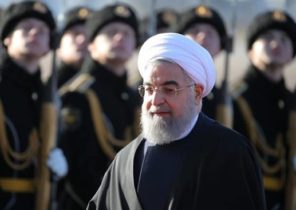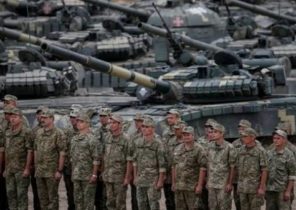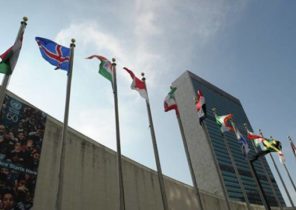
In June 2016, it seemed that the President of Argentina Mauricio Macri going smoothly. Argentina was chosen as the Chairman of the “Big twenty” (G20) in 2018. Meanwhile, in the US presidential race unfolded. Few people then doubted that Hillary Clinton will be nominated as a candidate for the Democratic nomination and will likely win in November. Macri was optimistic, hoping to promote its international agenda together with the allied country-minded.
Back in our days. Macri now must be very upset, because the international situation was much more problematic than he may have expected. However, all is not lost for Argentina in its future role as chair of the G20.
Yes, to do business with U.S. President Donald trump, who proclaimed the principle of “America first” will be difficult. At the July G20 summit in Hamburg trump has already isolated himself from other 19 leaders — including him — defending his decision to withdraw from the Paris climate agreement. It as believe almost all of the members of the international community, cannot be undone.
In addition, trump demanded a revision of the North American free trade agreement (NAFTA). This process, which began this month, is unlikely to end quickly, and if it will be clumsy, you may damage US relations with Mexico and Canada, also included in the G20.
However, trump is not the only factor, which is outside the control of Makri, which may adversely affect his success in the role of President in the G20. There is a serious likelihood that the negotiations on Brexia not completed by the deadline, and then begin a relationship “without an agreement”. This will be a powerful economic shock for Britain and possibly for continental Europe. In addition, the numerous conflicts in the middle East, the growing humanitarian crisis in Africa, as well as the deteriorating situation in Venezuela could lead to destabilizing consequences well beyond national borders.
Another source of uncertainty is the upcoming election in the Latin American countries in the G20. In October in Argentina will be held parliamentary elections, and in Mexico and Brazil in next year’s presidential elections, which are expected to be successful candidates populists.
So what can make the Makri to increase the chances of success of the presidency of Argentina in the G20? As for trump, then he can try to use the friendly relationship that began even before the political careers of both leaders. However, this kind of relationship is associated with certain risks as to the business relations trump in Argentina there are questions.
There is a more promising direction: Makri can and should work closely with civil society groups and activists to ensure sufficient space for participation. In Hamburg during the military clashes with protesters were injured nearly 200 police officers, and a German insurance company got the bill at the end of 12 million euros ($14.2 million). The Argentine Committee for the preparation of the G20 summit needs to understand that there may be riots, especially against some unpopular decisions of the government to reduce government spending, which has already provoked mass protests.
More broadly, the Argentine presidency in the G20 remains an important chance to realize the foreign policy agenda of the Makri, which focuses on international cooperation. The term of office of the President of Mexico, Enrique peña Nieto expires next year, and the President of Brazil Michel Temer turned out at the center of scandals, so Makri may try to position Argentina as a regional leader in the G20, representing the interests of Latin America.
This leadership approach gives Brands the opportunity to revive a struggling bloc MERCOSUR, which includes several Latin American countries and which is able to help national governments to reduce poverty through increased trade and investment. This work (as well as the agenda of Argentina in the G20) will receive additional impetus, if in December successfully completed the negotiation of a trade agreement between the EU and MERCOSUR.
In addition, Argentina is well positioned to use its presidency of the G20 for the implementation of the climate and energy plan agreed upon by the G19 countries (without USA). Makri has declared 2017 as the “year of renewable energy” and promised that, by 2025, Argentina will meet 20% of electricity demand from renewable energy sources.
The government of Argentina has now joined the “coalition of high-ambition” played a key role in the successful signing of the Paris climate agreement in 2015. This informal group comprising the most different countries — from Germany and Brazil to Marshall Islands, declared “unwavering” commitment to the agreement. And Argentina became the first country, which introduced a more ambitious version of the national policy in the field of climate change in the framework of the Paris agreement.
Macri should use the reputation of a country created through these steps (and which, of course, must be confirmed by the progress of Argentina towards the set targets in the field of renewable energy and reducing deforestation), and to push other countries to a similar audit of their climate promises. The time for this will be very appropriate. Today, those pledges to reduce emissions made by countries are insufficient to limit the increase of global temperatures established in the Paris agreement level “significantly below two degrees Celsius.” In this regard, the UN will hold in 2018, a special dialogue to push countries to adopt more ambitious national plans in 2020.
Argentina can also bind the G20 set targets in the field of jobs and technology to the task of forming a “low-carbon economy”. An important element of any attempt to combine these agenda will be the finalization of a long-term strategy of Argentina for economic development with low emissions before the start of the G20 summit in 2018. Among other things, progress in this area (which is part of the Paris agreement) will become a powerful signal for investors trying to mitigate climate risks and seeking new opportunities in the renewable energy sector, the production of electric vehicles and batteries.
Global volatility, of course, will affect the presidency of Argentina in the G20. But it will reflect their own actions most of Argentina. To improve the chances for success of its presidency in the G20 Macri should focus on working closely with European and Latin American allies of Argentina, at the same time strengthening the reputation of his government in those questions which are critical for all.







